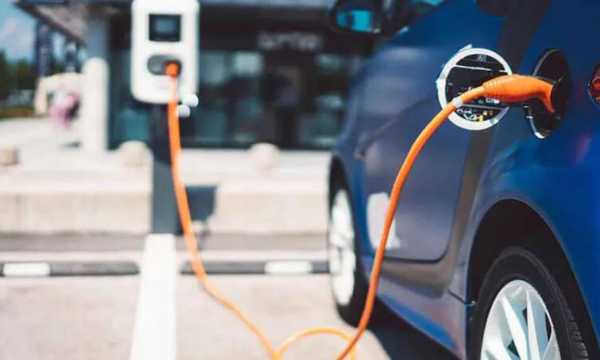The Evolution of Electric Cars
Electric cars, also known as EVs (Electric Vehicles), represent a revolution in automotive technology and environmental conservation.
Their rise is not just a trend but a significant shift towards sustainable transportation. Unlike traditional gasoline-powered vehicles, electric cars run on electricity, offering a cleaner, more efficient, and increasingly accessible option for drivers worldwide.
The Evolution of Electric Cars
Early Innovations: The concept of electric vehicles dates back to the 19th century when inventors in Europe and America began experimenting with battery-powered cars. These early models laid the groundwork for the automotive industry, though they were soon overshadowed by gasoline-powered vehicles due to their greater range and faster refueling times.
The Revival in the 21st Century: Fast forward to the 21st century, and we’re witnessing a renaissance in electric vehicle technology, driven by advances in battery storage, concerns over climate change, and improvements in renewable energy sources. Companies like Tesla have been at the forefront, pushing the boundaries of what electric cars can achieve in terms of performance, range, and affordability.
Benefits of Electric Cars
Environmental Impact
One of the most compelling reasons to switch to an electric car is its positive impact on the environment. Electric cars produce zero tailpipe emissions, which significantly reduces air pollution compared to internal combustion engines. Additionally, as the electricity grid becomes greener with more renewable energy sources, the overall carbon footprint of electric cars continues to decrease.
Economic Benefits
Electric cars offer various economic advantages, including lower fuel costs and reduced maintenance expenses. Electric motors have fewer moving parts than traditional engines, which means less wear and tear and, consequently, lower servicing costs.
Health Benefits
Reducing air pollution has direct health benefits. By decreasing the number of pollutants released into the atmosphere, electric cars contribute to cleaner air, which can lead to lower rates of respiratory and cardiovascular diseases among the population.
How Electric Cars Work
Battery Technology
The heart of an electric car is its battery. Lithium-ion batteries, similar to those used in smartphones and laptops, power most modern electric vehicles. These batteries are known for their high energy density and efficiency, allowing cars to travel longer distances on a single charge.
Electric Motor and Transmission
Electric cars use electric motors to drive their wheels. These motors convert electrical energy from the battery into mechanical energy, providing instant torque and making electric cars incredibly responsive and fun to drive.
Charging Infrastructure
The development of charging infrastructure is crucial for the widespread adoption of electric vehicles. Public charging stations are becoming more common, and home charging solutions allow drivers to conveniently recharge their vehicles overnight.
Types of Electric Cars
Battery Electric Vehicles (BEVs)
BEVs are fully electric vehicles powered solely by their batteries and electric motors. They produce zero emissions and offer the highest energy efficiency among electric vehicles.
Hybrid Electric Vehicles (HEVs)
HEVs combine an internal combustion engine with an electric motor, using the engine to charge the battery or directly power the vehicle. This setup improves fuel efficiency and reduces emissions compared to conventional vehicles.
Plug-in Hybrid Electric Vehicles (PHEVs)
PHEVs are similar to HEVs but with a crucial difference: they can be plugged into an external power source to recharge their batteries, allowing for longer electric-only driving ranges.
Choosing the Right Electric Car
Considerations for Potential Owners
When considering an electric car, potential owners should evaluate their driving habits, charging options, and budget. Factors such as range, charging infrastructure availability, and vehicle size will play significant roles in determining the best fit for an individual’s needs.
The Future of Electric Cars
Advancements in Technology
The future of electric cars is bright, with ongoing advancements in battery technology, autonomous driving features, and vehicle-to-grid (V2G) capabilities. These innovations promise to make electric cars more accessible, efficient, and integrated into the broader energy ecosystem.
The Role of Government Policies
Government policies and incentives are crucial in accelerating the adoption of electric vehicles. Tax credits, subsidies, and investments in charging infrastructure are examples of measures that can significantly impact the electric car market.
Global Trends
Globally, we’re seeing a shift towards electric mobility, with countries setting ambitious targets for electric vehicle adoption. This trend is driven by the urgent need to address climate change and reduce dependence on fossil fuels.
Conclusion
Electric cars are more than just a technological innovation; they are a key part of the solution to global environmental challenges. With their numerous benefits, including reducing emissions, saving costs, and improving public health, electric cars represent a significant step forward in creating a sustainable future. As technology continues to advance and the world moves closer to renewable energy sources, the role of electric cars will only grow in importance.
FAQs
- Are electric cars truly environmentally friendly? Yes, electric cars are environmentally friendly, especially as the electricity grid becomes cleaner with more renewable energy sources. They produce zero tailpipe emissions, which significantly reduces air pollution.
- How long do electric car batteries last? Electric car batteries typically last between 8 to 15 years, depending on the vehicle’s use and battery technology. Advances in battery technology are also increasing their lifespan.
- Can electric cars save me money? Yes, electric cars can save money over time through lower fuel and maintenance costs. While the upfront cost may be higher, the long-term savings on gas and servicing can be significant.
- What is the range of an electric car? The range of electric cars can vary widely, with some models now offering over 300 miles on a single charge. Range is continually improving with advances in battery technology.
- Are there enough charging stations for electric cars? The availability of charging stations is increasing rapidly, with significant investments in charging infrastructure across many countries. Home charging options also provide a convenient solution for daily use.
 Car Buying Guides: Navigating Your Way to the Perfect Purchase
Car Buying Guides: Navigating Your Way to the Perfect Purchase
Embark on your journey to finding the ideal vehicle with comprehensive car buying guides tailored to help […]
More Electric Car Maintenance: 6 Effective Tips for Longevity and Performance
Electric Car Maintenance: 6 Effective Tips for Longevity and Performance
Electric cars are currently popular because they are better for the planet than traditional gasoline-powered cars. Electric […]
More Embracing the Future: 5 Advantages of Electric Cars
Embracing the Future: 5 Advantages of Electric Cars
With the widespread use of electric vehicles, the automotive industry is undergoing a revolutionary change. As we […]
More